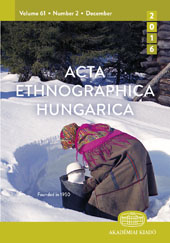ANTI-PROVERBS AND MASS COMMUNICATION: THE INTERPLAY OF TRADITIONAL AND INNOVATIVE FOLKLORE
ANTI-PROVERBS AND MASS COMMUNICATION: THE INTERPLAY OF TRADITIONAL
AND INNOVATIVE FOLKLORE
Author(s): Wolfgang MiederSubject(s): Customs / Folklore, Media studies, Applied Linguistics, Theory of Literature
Published by: Akadémiai Kiadó
Keywords: anti-proverb; currency; folklore; frequency; humor; innovation; mass media; parody; proverb; tradition; traditionality; variation; wisdom;
Summary/Abstract: While a number of anti-proverb collections as well as linguistic studies of such proverb parodies have appeared in several languages during the past twenty-five years, they have for the most part ignored the folkloristic importance of anti-proverbs as the source of new folk proverbs. There is no doubt that most anti proverbs are one-day-wonders in that they will never enter general folk speech by gaining a certain currency and traditionality. However, there are at least some anti-proverbs that do express new wisdom and which have by now been accepted as innovatively expressed wisdom based on traditional proverbial structures. All of this is taking place in the vast area of the mass media (newspapers, magazines, radio, television, and the Internet), enabling such newly discovered wisdom to reach thousands of people who in turn use these texts to such a degree that they can be considered to be new proverbs. It behooves paremiologists to study these new proverbs, and paremiographers should definitely include these proverbs in their revised or new proverb collections. Proverb scholarship throughout the world will not advance if scholars do not pay proper attention to the proverbial lore of modernity, with anti-proverbs at least in part being important sources for such new proverbs.
Journal: Acta Ethnographica Hungarica
- Issue Year: 52/2007
- Issue No: 1
- Page Range: 17-45
- Page Count: 29
- Language: English
- Content File-PDF

